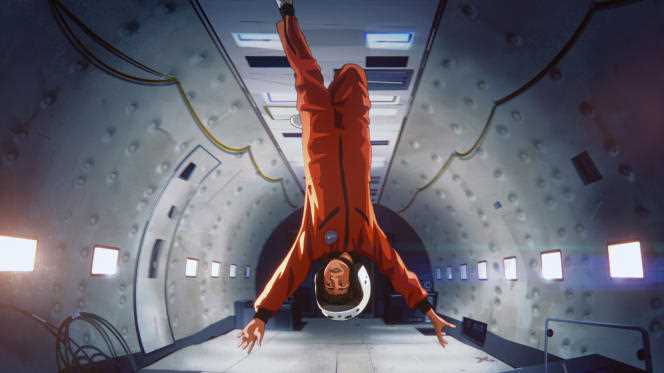Barely publicized and discreetly released on Netflix, Richard Linklater’s latest film has, at first glance, all the trappings of a small, modest object cobbled together in a corner, pending a more ambitious work. Stan, 51, returns in voiceover to his childhood in Houston (Texas) in 1969, when the first trip to the Moon was being prepared. He evokes, in particular, an event so far kept secret: approached by emissaries from the space agency, the little Stan would have been selected to secretly make a first trip to the Moon in a module too narrow for an adult.
The story is, of course, a retrospective delirium, a child’s fantasy consolidated in reality. But the story of the space voyage is a pretext, and Apollo 10 1/2. The rockets of my childhood quickly reveals his true ambition: that of a filmmaker who, entering his sixties, recalls his childhood, thus fleshing out a corpus of contemporary films, where confirmed filmmakers get caught up in the game of a cinematographic “I remember”: Rome (2018), by Alfonso Cuaron, Once Upon a Time… in Hollywood (2019), by Quentin Tarantino, Belfast (2021), by Kenneth Branagh, and, soon, the highly anticipated The Fabelmans, by Steven Spielberg.
Memorial Cathedral
To build his memorial cathedral, Linklater (Boyhood, in 2014) uses the rotoscope animation technique for the third time (after waking lifein 2001, and A Scanner Darkly, in 2006), which consists of shooting in real shots, then drawing the contours of the figures frame by frame. It takes the eye some time to get used to a graphic system that roughly outlines the detail of the world, plunging the images into a bath of rough surfaces and acid colors. It is also less about getting used to it than understanding the intimate reason for such use, which does not take long to reveal itself.
With the freedom of the filmmaker emancipated from all conventions, Linklater elaborates a catalog of memories and sensations
After five minutes, Stan’s delirious story freezes in a freeze frame, and deviates from its trajectory: “Stop! Let’s forget all that for now, we’ll come back to it later. I will tell you about life at the time, it was great to be a child there. » With the freedom of the filmmaker emancipated from all conventions, Linklater elaborates, over fifty minutes, a catalog of memories and sensations caught in the naive setting of the rotoscopic image: the fads of his parents, the meals that his mother prepared, leisure, music, the weekend program, the discovery of 2001: A Space Odyssey (1968), by Stanley Kubrick, and the omnipresence of television.
You have 36.96% of this article left to read. The following is for subscribers only.
